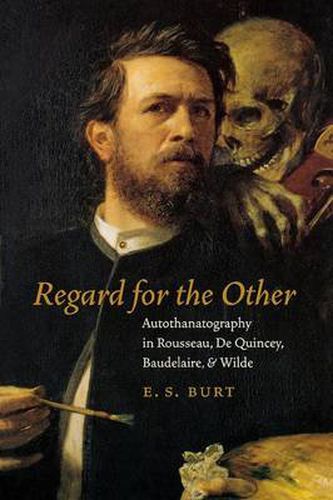Readings Newsletter
Become a Readings Member to make your shopping experience even easier.
Sign in or sign up for free!
You’re not far away from qualifying for FREE standard shipping within Australia
You’ve qualified for FREE standard shipping within Australia
The cart is loading…






This title is printed to order. This book may have been self-published. If so, we cannot guarantee the quality of the content. In the main most books will have gone through the editing process however some may not. We therefore suggest that you be aware of this before ordering this book. If in doubt check either the author or publisher’s details as we are unable to accept any returns unless they are faulty. Please contact us if you have any questions.
Although much has been written on autobiography, the same cannot be said of autothanatography, the writing of one’s death. This study starts from the deconstructive premise that autobiography is aporetic, not or not only a matter of a subject strategizing with language to produce an exemplary identity but a matter also of its responding to an exorbitant call to write its death. The I-dominated representations of particular others and of the privileged other to whom a work is addressed, must therefore be set against an alterity plaguing the I from within or shadowing it from without. This alterity makes itself known in writing as the potential of the text to carry messages that remain secret to the confessing subject.
Anticipation of the potential for the confessional text to say what Augustine calls the secret I do not know, the secret of death, engages the autothanatographical subject in a dynamic, inventive, and open-ended process of identification. The subject presented in these texts is not one that has already evolved an interior life that it seeks to reveal to others, but one that speaks to us as still in process. Through its exorbitant response, it gives intimations of an interiority and an ethical existence to come.
Baudelaire emerges as a central figure for this understanding of autobiography as autothanatography through his critique of the narcissism of a certain Rousseau, his translation of De Quincey’s confessions, with their vertiginously ungrounded subject-in-construction, his artistic practice of self-conscious, thorough-going doubleness, and his service to Wilde as model for an aporetic secrecy.
The author discusses the interruption of narrative that must be central to the writing of one’s death and addresses the I’s dealings with the aporias of such structuring principles as secrecy, Levinasian hospitality, or interiorization as translation. The book makes a strong intervention in the debate over one of the most-read genres of our time.
$9.00 standard shipping within Australia
FREE standard shipping within Australia for orders over $100.00
Express & International shipping calculated at checkout
This title is printed to order. This book may have been self-published. If so, we cannot guarantee the quality of the content. In the main most books will have gone through the editing process however some may not. We therefore suggest that you be aware of this before ordering this book. If in doubt check either the author or publisher’s details as we are unable to accept any returns unless they are faulty. Please contact us if you have any questions.
Although much has been written on autobiography, the same cannot be said of autothanatography, the writing of one’s death. This study starts from the deconstructive premise that autobiography is aporetic, not or not only a matter of a subject strategizing with language to produce an exemplary identity but a matter also of its responding to an exorbitant call to write its death. The I-dominated representations of particular others and of the privileged other to whom a work is addressed, must therefore be set against an alterity plaguing the I from within or shadowing it from without. This alterity makes itself known in writing as the potential of the text to carry messages that remain secret to the confessing subject.
Anticipation of the potential for the confessional text to say what Augustine calls the secret I do not know, the secret of death, engages the autothanatographical subject in a dynamic, inventive, and open-ended process of identification. The subject presented in these texts is not one that has already evolved an interior life that it seeks to reveal to others, but one that speaks to us as still in process. Through its exorbitant response, it gives intimations of an interiority and an ethical existence to come.
Baudelaire emerges as a central figure for this understanding of autobiography as autothanatography through his critique of the narcissism of a certain Rousseau, his translation of De Quincey’s confessions, with their vertiginously ungrounded subject-in-construction, his artistic practice of self-conscious, thorough-going doubleness, and his service to Wilde as model for an aporetic secrecy.
The author discusses the interruption of narrative that must be central to the writing of one’s death and addresses the I’s dealings with the aporias of such structuring principles as secrecy, Levinasian hospitality, or interiorization as translation. The book makes a strong intervention in the debate over one of the most-read genres of our time.